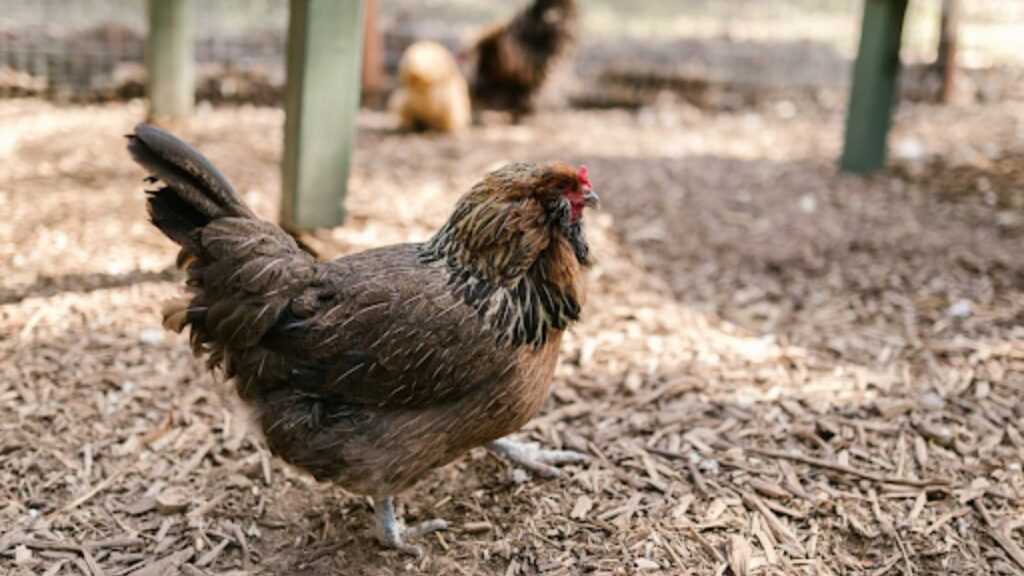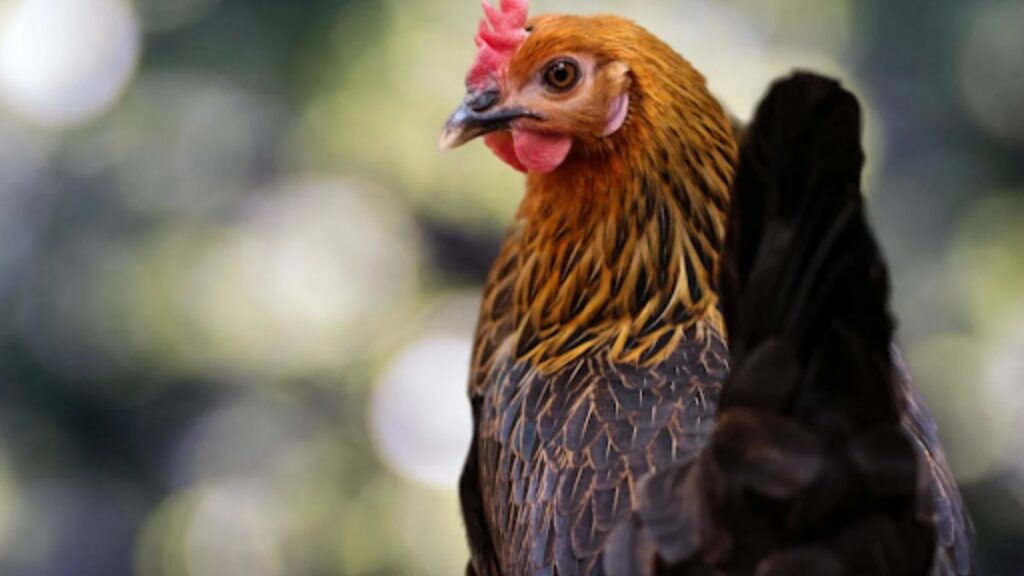Photo by Dawood Javed from pexels.com
In an era marked by increasing uncertainty and a growing desire for sustainability, many individuals and families are embracing self-sufficiency as a viable way of life. Central to this movement is the humble backyard chicken, which offers more than just fresh eggs; it symbolizes a step towards food security, environmental responsibility, and a deeper connection with our food sources.
This blog explores the multifaceted role of backyard chickens in fostering self-sufficiency, highlighting their benefits, practical aspects of raising them, economic advantages, and their broader impact on sustainable living practices.
The Egg-cellent Benefits of Backyard Chickens
At the heart of backyard chicken keeping lies the most apparent advantage: a consistent supply of fresh, high-quality eggs. Unlike store-bought eggs that may have been sitting on shelves for weeks, eggs from your backyard flock are as fresh as they come. This freshness not only ensures superior taste and nutrition but also provides invaluable food security in uncertain times.
Nutritional Superiority
Backyard chicken eggs are often richer in nutrients compared to their commercial counterparts. Research indicates that eggs from pasture-raised chickens contain higher levels of omega-3 fatty acids, vitamins A and E, and beta-carotene.
This nutritional boost is directly linked to the diverse diet that backyard chickens enjoy, including insects, plants, and kitchen scraps alongside their regular feed.
Self-Reliance and Independence
Having your own egg-laying hens reduces dependence on grocery stores and external food sources. This self-reliance is a cornerstone of the self-sufficient lifestyle, providing peace of mind while minimizing the need for frequent supermarket trips.
Furthermore, backyard chickens serve as excellent composters, transforming kitchen scraps and yard waste into nutrient-rich fertilizers for gardens. Their natural behavior—scratching and pecking—helps aerate the soil and control pests without resorting to chemical pesticides.
Broadening Your Flock’s Variety
For those looking to diversify their poultry experience, ducks can be an excellent addition. Resilient and adaptable ducks offer unique benefits such as pest control and egg production. By combining chickens and ducks, you can create a balanced and resilient backyard ecosystem that enhances your self-sufficiency journey.
Economic Advantages of Backyard Chicken Keeping
One of the most compelling aspects of raising backyard chickens is the potential for significant cost savings over time. While initial setup costs for a coop and supplies can be substantial, the long-term economic benefits can outweigh these expenses.
Cost-Effectiveness Analysis
Consider these economic advantages:
- Reduced Grocery Bills: A steady supply of fresh eggs means lower spending on this staple item at the store.
- Pest Control Savings: Chickens naturally forage for insects and weeds, reducing the need for expensive pesticides and herbicides.
- Fertilizer Production: The nitrogen-rich manure produced by chickens can replace store-bought fertilizers, saving money on garden supplies.
- Potential Income: Excess eggs can be sold to neighbors or at local farmers’ markets, providing an additional income stream.
While feed costs are an ongoing expense, many backyard chicken keepers find creative ways to supplement their birds’ diets with kitchen scraps and garden waste, further reducing overall costs.
Economic Resilience
Beyond mere dollars and cents, the economic benefits of backyard chickens contribute to a measure of resilience. In times of market instability or supply chain disruptions, having a personal source of protein becomes invaluable. This independence fosters a sense of security that many find comforting amid global uncertainties.
| Bonus: Start a chicken feed garden. Growing sunflowers, corn, or other chicken-friendly crops can help offset feed costs and provide your flock with nutritious, home-grown treats. |
Environmental Impact and Sustainability

Photo by RDNE Stock Project from pexels.com
Backyard chicken keeping aligns perfectly with sustainability principles central to a self-sufficient lifestyle. By producing eggs at home, you significantly reduce your carbon footprint associated with commercial egg production and transportation.
Key Environmental Benefits
- Reduced Food Miles: Eggs travel from your backyard to your table, eliminating transportation emissions.
- Waste Reduction: Chickens consume kitchen scraps and garden waste, diverting these materials from landfills.
- Biodiversity Support: Free-ranging chickens help maintain healthy insect populations and soil ecosystems.
- Chemical Reduction: Natural pest control methods reduce reliance on synthetic chemicals in gardens.
Additionally, raising backyard chickens serves as an educational tool that raises awareness about food production and animal welfare. This increased consciousness often leads to more sustainable choices in other areas of life, creating a ripple effect of positive environmental impact.
A Broader Perspective on Sustainability
Beyond individual households, the widespread adoption of backyard chicken keeping could have significant environmental benefits on a larger scale. If more communities embraced small-scale poultry farming practices, it could reduce reliance on factory farming—a major contributor to greenhouse gas emissions—and promote localized food systems.
This shift would not only benefit individual families but also contribute to global efforts toward combating climate change.
Challenges and Considerations
While the benefits of backyard chickens are numerous, it’s essential to acknowledge that this endeavor comes with challenges. Responsible chicken keeping requires commitment, knowledge, and careful planning.
Key Considerations
- Local Regulations: Many urban areas have restrictions on keeping chickens; always check local laws before starting your flock.
- Predator Protection: Chickens are vulnerable to various predators; secure housing is necessary.
- Health Management: Like any animals, chickens can fall ill; proper veterinary care is essential.
- Time Commitment: Daily feeding, egg collection, and coop maintenance require consistent attention.
- Neighbor Relations: Not all neighbors may appreciate the sounds or smells associated with chicken keeping; good communication is vital.
Overcoming Challenges Through Community Support
One way to address these challenges is by connecting with local homesteading or urban farming communities. These groups often provide valuable resources such as advice on predator-proofing coops or navigating local regulations. Additionally, they offer opportunities for sharing knowledge or even pooling resources like feed or equipment.
Despite these challenges, many find that the rewards far outweigh the difficulties. With proper preparation and ongoing education, these obstacles can be effectively managed.
| Why This Matters: By raising backyard chickens, you’re not just producing food; you’re actively participating in a more sustainable and resilient food system. This small-scale, local approach to food production is a crucial step towards a more environmentally friendly future. |
A Step Towards Self-Sufficiency
Backyard chickens play a vital role in fostering a self-sufficient lifestyle. From providing fresh eggs to offering economic benefits and supporting environmental sustainability, these versatile birds are more than just pets—they’re partners in the journey toward greater self-reliance.
As we face increasingly complex global challenges—ranging from food insecurity to climate change—the simple act of tending to a small flock can provide security, connection, and purpose. Whether you’re a seasoned homesteader or an urbanite exploring new possibilities, integrating chickens into your life may be one rewarding step toward a more self-sufficient future.
So why not consider adding some feathered friends to your backyard? The journey toward self-sufficiency may just begin with a few chickens—and dreams of fresher eggs, greener gardens, and a more connected way of life await you!

